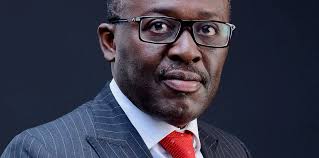In a world that feels like it’s constantly on edge—from war zones to weather alerts, and now, Wi-Fi hacks—Nigeria finds itself at a tough crossroads. The country’s top military chief, General Christopher Musa, didn’t mince words when he laid it all bare at a packed lecture hall in the University of Ibadan: Nigeria’s security troubles are no longer just about guns and gangs. They’re now a cocktail of terrorism, climate chaos, cyber warfare, and international drama. Yes, the country has moved from AK-47s to artificial intelligence threats.
Speaking on Thursday at a public lecture titled “Global Fragility and Security Management in Nigeria,” the Chief of Defence Staff (CDS) warned that security, as we once knew it, has morphed into something far more complex—and Nigeria is smack in the middle of it.
“Terrorism isn’t just a local problem anymore,” he said. “From the fallout in Libya to chaos in the Sahel, arms and extremist ideas are flowing into Nigeria like water through a leaking roof.”
General Musa pointed out that insecurity is no longer about militants in the forests or bandits on motorbikes. The nation is also grappling with hackers backed by foreign interests, fake news campaigns designed to mislead the public, and the economic aftershocks of global conflicts—like the war in Ukraine—pushing food prices through the ceiling. If you’re wondering why your tomatoes cost more than a plate of jollof rice, there you have it.
And if you think climate change is only about hot weather and flooding, think again. The shrinking Lake Chad Basin, which once supported over 30 million people, has now become a breeding ground for tension, displacing communities and igniting land disputes across Nigeria’s borders.
“It’s like everything that can go wrong is trying to go wrong at once,” one student muttered after the lecture, echoing the sentiments of many in the audience.
Nigeria’s borders remain worryingly porous, Musa said. Meanwhile, online threats are becoming just as deadly as physical ones. In response, the military is stepping up: introducing cyber commands, partnering with tech experts, and even deploying drones and AI to gather better intelligence.
Still, it’s not all firepower and gadgets. The CDS emphasised that real progress depends on people. His four-point strategy to build lasting peace includes stronger institutions (yes, including the justice system), youth empowerment, community resilience, and international cooperation.
“Security is not just about the absence of war,” he said. “It’s about the presence of justice, opportunity, and hope.”
To applause, General Musa challenged the University of Ibadan and other Nigerian universities to do more than hold lectures and hand out certificates. He urged scholars and students to be part of the national security solution—through research, innovation, and training future leaders who can think critically, act decisively, and yes, maybe even use grammar to outwit terrorists.
After the lecture, which was chaired by Lt. Gen. Lamidi Adeosun (representing former Army Chief, Lt. Gen. Tukur Buratai), General Musa was honoured with a Fellowship from the TETFund Centre of Excellence in Security Management.
In the crowd were academics, military brass, civil society leaders, and of course, curious students—some of whom were probably wondering if their Wi-Fi passwords were secure enough.
In Nigeria, where security challenges are now as multi-layered as a wedding cake, General Musa’s message was clear: every Nigerian—whether in uniform, agbada, or jeans—has a role to play.
As he left the podium, one couldn’t help but think: If Nigeria is a house under siege, then perhaps the roof can still be repaired—if everyone picks up a nail and hammer.
And maybe, just maybe, we should stop downloading random apps from strange websites. Na from clap dance dey start.
#SecurityNigeria #GeneralMusa #CyberThreats #ClimateCrisis #Terrorism #NaijaMatters




